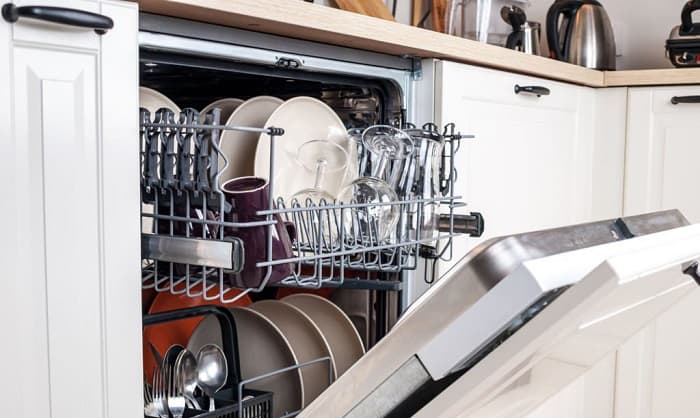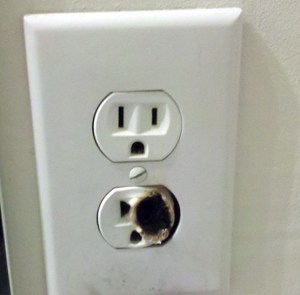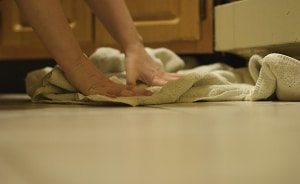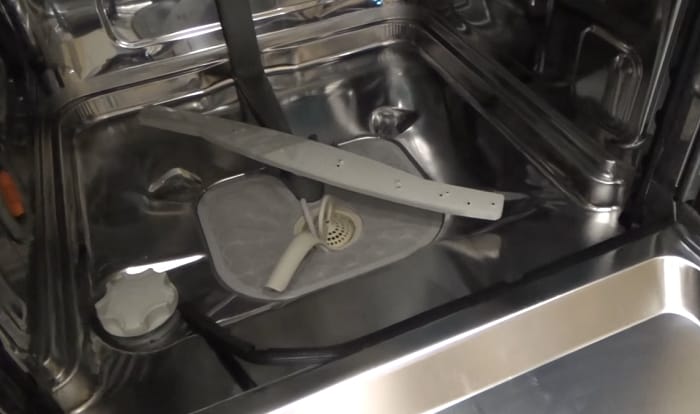Are you at your wit’s end as to why dishwasher keeps tripping breaker? Well, it could be due to an outlet problem, a faulty component, water leakages, and damaged wires, connectors, and motor.
The variety of causes merits a more detailed explanation, so read on to know why they happen and what you should do about them. It’s worth knowing all of them to get to the bottom of things and could even help you save on replacement costs.
Table of Contents
Reasons Why the Dishwasher Keeps Tripping the Breaker
Whether you have a Bosch dishwasher, a GE dishwasher, a Samsung dishwasher, or any other brand, expect to encounter similar breaker issues with plenty of them.
Even if it’s a new dishwasher, it’s still subject to a fault that may damage some essential parts, which, in turn, causes the appliance to malfunction. Once this happens, the breaker for the dishwasher will always trip unless you have it repaired or, in a few cases, replaced.
Here are the top reasons why your dishwasher may be tripping your property’s main circuit breaker.
1. Outlet Problem
Let’s say your LG dishwasher suddenly trips the breaker after you plug it in, and when flipped, its switch back on, the outlet starts emitting smoke.
Don’t plug it in again once you encounter this issue – all the better if you already know that the breaker tripped the moment the dishwasher was plugged in. The dishwasher itself is not the problem but the outlet, which has most likely been compromised.
- How to Solve: This one needs to be seen and corrected by a licensed electrician immediately, especially if you have no knowledge and experience in fixing outlets.
Or learn how to replace an outlet. Usually, this involves cutting out the burnt wires and replacing wire nuts while tightening all the connections. You can start with this neat video that teaches the procedure step-by-step:
If the dishwasher’s motor was damaged, too, (which is likely since the outlet didn’t trip the breaker when you plugged it in again), you may need to have it repaired or replaced.
2. Damaged Wires and Loose Connections
It could be due to this problem, especially if you know that your dishwasher is connected to a GFCI (ground fault circuit interrupter), which is the one tripping and not your main breaker. If your breaker tripped during a cycle while it’s circulating water, it may be due to burnt wire caps or loose cord connections.
Typically, you’ll need to remove the toe panel and the junction box’s cover to see all the dishwasher’s wiring and connections. Be sure to shut down the breaker before making further investigations.
Look for telling signs like black, melted portions on the wire caps. Check for connections that have come loose or completely detached.
- How to Solve: Anything related to fixing a dishwasher issue that’s causing a circuit breaker to trip is expounded on in the second, main section of this article. Skip to that to learn how to fix problems related to damaged wires and components.
3. Faulty Dishwasher Parts
This same issue can trip a GFCI since it’s localized to the dishwasher. A fault or short tends to damage integral parts of the dishwasher, such as the heating element, causing the gadget to fail and the breaker to trip.
Shorted heating elements are one of the most common causes of dishwashers tripping the breaker. Even physical damage can be a factor, which, in turn, causes the heating element to begin functioning erratically, sometimes even drawing too much power that it needs.
The result? The breaker trips to keep you safe and prevent more damage from being done to the dishwasher. Take note that since it takes a while for the heating element to kick in during a cycle, it may take a few minutes or even up to 30 minutes before the dishwasher triggers a breaker trip.
That’s only one example, though. What are the other parts of the dishwasher that are worth checking out? Besides the motor, start with these common culprits:
- Motor
- Control switches
- Control board
- Drain pumps
- Wash pumps
- Transorb
- Door latch system
Check for tell-tale clues like scorched portions, undesirable odors (especially on the transorb), and other obvious signs of damage on any of the parts mentioned above.
At best, these components could be tripping the breaker due to either one of these reasons, so it’s worth remembering all of them:
- The part becomes damaged or exposed to extreme temperature and moisture to the point of malfunctioning. Once that happens, the faulty part starts drawing in more power than what it needs, which the breaker detects.
As a result, it trips as a natural reaction. Usually, this happens when the heating element or motor fails.
- A fault or short circuit damages the component and then begins a domino effect that causes other parts to malfunction. A good example is when the transorb becomes defective to the point that it damages the control board.
4. Leakages
I refer to both electrical leakages and leaking water problems when I say this. Damaged water pumps may cause the former. Any electrical leakage is bound to trip a properly functioning circuit breaker.
As for water leaking, it may be because the door switch was damaged, since it’s the one primarily responsible for preventing it. Remember that dishwashers can be destroyed by water, too.
Once you discover that it’s leaking and not filling up with water correctly, don’t delay checking the dishwasher for the exact component causing it. Oftentimes, leaks may not trip the breaker now, but over time, once the other vital parts become damaged, don’t be surprised once it starts to happen.
How to Fix a Dishwasher That Keeps Tripping the Breaker
Much like any electrical problem, the fix mainly depends on the cause. There are issues where you can still salvage the dishwasher, while others leave you no choice but to replace it.
With that said, let’s cross out the dishwasher issues that normally can’t be fixed. You have no other choice but to replace the dishwasher if:
- Its motor becomes significantly damaged. This requires a technician’s expert eye to verify. Be mindful of the correct dishwasher voltage when you decide to buy a new one.
- It’s no longer functioning as well as before and there are signs of rusting.
With the irreparable issues out of the way, here are the problems and their appropriate fixes:
1. Busted or Loose Wiring
Let’s assume your KitchenAid or Whirlpool dishwasher has burnt out, damaged, melted, or torn-up wires once you’ve gained access to them. The easy fix to this is to cut out the compromised portions of the wires simply. Afterward, strip a new end to replace them.
Any wire that has gotten loose for some reason needs to be re-screwed to the correct terminal connections.
2. Faulty Control Board, Transorb, or Other Replaceable Parts
Once you pinpoint that the control board, drain pump, door latch system, or transorb is the one causing the dishwasher to fail and trip the circuit breaker, you’ll simply need to replace it. Check the manufacturer’s manual for the exact model and be sure to buy only that.
3. Water Leaking
Before they start causing permanent damage, replace the wash pumps once you confirm that they’re leaking.
Conclusion
I hope you are able to pinpoint the exact reason why dishwasher keeps tripping breaker with the information I shared here. Overall, these reasons could be due to a number of interconnected issues like shorts and faults that damage essential wiring components, leading to trips or leakages.
If you’re unsure of your findings and what steps you should take next, don’t have second thoughts about calling your local electrician or the dishwasher’s manufacturer.
Read next: Choosing the Most Proper Breaker Amps for a Dishwasher.

I am Andrew Wright. With 8 years of experience designing, installing, and maintaining electrical power systems. I love my job, and I have always wanted to offer others the necessary help so they can take care of their houses.




